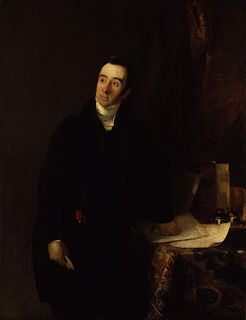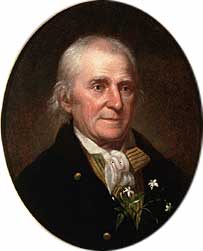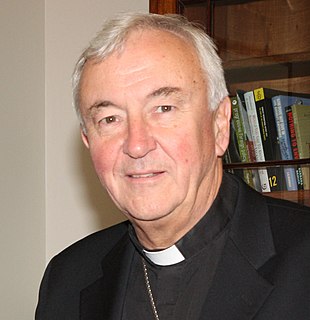A Quote by Richard Steele
Of all the affections which attend human life, the love of glory is the most ardent.
Related Quotes
As it is with spiritual discoveries and affections given at first conversion, so it is in all subsequent illuminations and affections of that kind; they are all transforming. There is a like divine power and energy in them as in the first discoveries; they still reach the bottom of the heart, and affect and alter the very nature of the soul, in proportion to the degree in which they are given. And a transformation of nature is continued and carried on by them to the end of life, until it is brought to perfection in glory.
What actions are the most excellent? Those, certainly, which most powerfully appeal to the great primary human affections: to those elementary feelings which subsist permanently in the race, and which are independent of time. These feelings are permanent and the same; that which interests them is permanent and the same also.
The test of the life of a saint is not success, but faithfulness in human life as it actually is. We will set up success in Christian work as the aim; the aim is to manifest the glory of God in human life, to live the life hid with Christ in God in human conditions. Our human relationships are the actual conditions in which the ideal life of God is to be exhibited.
Since holiness is the main thing that excites, draws, and governs all gracious affections, it is no wonder that all such affections tend to holiness. That which men love, they desire to have and to be united to, and possessed of. That beauty which men delight in, they desire to be adorned with. Those acts which men delight in, they necessarily incline to do.
A composition which dazzles at first sight by gaudy epithets, or brilliant turns or expression, or glittering trains of imagery, may fade gradually from the mind, leaving no enduring impression; but words which flow fresh and warm from a full heart, and which are instinct with the life and breath of human feeling, pass into household memories, and partake of the immortality of the affections from which they spring.
Love has no middle term; either it destroys, or it saves. All human destiny is this dilemma. This dilemma, destruction or salvation, no fate proposes more inexorably than love. Love is life, if it is not death. Cradle; coffin, too. The same sentiment says yes and no in the human heart. Of all the things God has made, the human heart is the one that sheds most light, and alas! most night.
Sin also carries on its war by entangling the affections and drawing them into an alliance against the mind. Grace may be enthroned in the mind, but if sin controls the affections, it has seized a fort from which it will continually assault the soul. Hence, as we shall see, mortification is chiefly directed to take place upon the affections.
And as this is the obvious appearance of things, it must be admitted, till some hypothesis be discovered, which by penetrating deeper into human nature, may prove the former affections to be nothing but modifications of the latter. All attempts of this kind have hitherto proved fruitless, and seem to have proceeded entirely from that love of simplicity which has been the source of much false reasoning in philosophy.
Given that we desire long life, should we not take eternal life into account? If we long for a kingdom which, however enduring, has an end, and glory and joy which, great as they are, will fade, and wealth that will perish with this present life, and we labour for the sake of such things; ought we not to seek the kingdom, glory, joy and riches which, as well as being all-surpassing, are unfading and endless, and ought we not to endure a little constraint in order to inherit it?




































